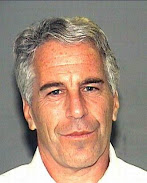America was founded on the concept of individual freedom. We
took on the world’s greatest superpower of the time over freedom and the notion
of issues like taxation without proper representation, and yet here we are,
some 250 years, and our Founding Fathers wouldn’t recognize the nation they
fought to hard to create.
Most of our freedoms, even the most basic ones likes speech,
expression, or right to bear arms are challenged on a daily basis And what
about taxation without representation, the core reason we fought the British? How
often do you get to vote on a tax or rate increase? Many of these are decided
by some appointed committee, not by anyone you voted for. Some have built-in
increases that don’t even require public debate.
Partisan political
primaries are taxpayer funded by state legislation. But what if you don’t
belong to one of the two corporate owned and controlled political parties?
Well, too bad. Independents, who are the
nation’s largest political bloc, and people who’ve joined a third party for
whatever reason, are still required to pay for the Democratic and Republican
primaries, and it gets worse.
While they are involuntarily taxed, they are legally prohibited from participating in their primaries (as an aside third party primaries are strictly self-funded. No taxpayer support) Fair? No. Legal? Questionable. Democratic? Hardly. In keeping with the founding tradition of “no taxation without representation”? Hell no! So, I can almost hear you ask “well, if you don’t like it, why don’t you just vote them out?”. That’s a great question. Very logical, but the answer is, sadly, not quite so clear cut.
The reason is that both parties, in the spirit of bipartisanship (some might call it “collusion”) have made it nearly impossible for them to be voted out of office. Briefly, the 2010 Citizens United and the 2014 McCutcheon rulings, declared that corporations, which are actually artificial legal fictions, are now “people” with the same rights as ordinary flesh and blood humans, with one key exception, and that concerns “free speech”.According to the (un)Supreme Court, declared that money is
now the same as “free speech”. And while
we are free to voice our opinions via donations to political campaigns, we are
capped in what we can give. Corporations, on the other hand, are not.
Apparently they have more “free speech” than you or me, and that means more
influence. They can give essentially as
much as they want (not that we have a spare $10 million laying around to give
to some candidate). As a result, they finance not just campaigns and political parties
but also fund so-called “leadership funds” (which are basically political “slush
funds”), and through various legal loopholes run commercials and ads on behalf
of a candidate or issue supported by that candidate. Independents and third parties
typically don’t get a dime.
Through state legislation, unequal ballot access is the
norm. That means there are one set of rules and requirements for Independents
and third parties and another set for the two corporate owned parties. They don’t
even have their own election representative to protect their interests! As a
rule, they are lumped in with whichever party has the smallest voter numbers
and forgotten.
Other issues, such a partisan gerrymandering all but guarantees
control of a district by the majority party. It allows districts to be drawn to
ensure they retain control of it. It’s a case of a party choosing the voters
instead of voters choosing their representatives. This is why gerrymandered districts
have reelection rates in the high 90% range.
Also, despite approval ratings in the upper 20% or low 30% range
(and occasionally as low as 9%), Congress has a reelection rate of 97%. Do you
think that’s by coincidence? Corporate
lobbyists help write (or write altogether) legislation as well as review bills,
provide summaries, and so forth. Do you think any of this is for our benefit?
Don’t bet on it. So, I will again ask
you, do you think we are free? How do compare with the rest of the world?
Did you notice anything particular here? Who is missing?
That’s right, the United States. We are not only not in the top five, we’re not
in the top ten or even the top 15! What the hell? If we’re supposed to be the “home
of the free”, why is nobody at home? Where are we?
Before getting to the U.S., I’d like to mention that
according to the Freedom Index, of the top 15 freest country, the index points
out that 13 of those 15 countries have seen a decline in their ratings. Just
two saw improvements. The nation which has seen the greatest loss of personal
and economic freedom was the Czech Republic with Finland and Canada close
behind. Only Japan and Denmark have both experienced slight improvements at
0.07 and 0.02 respectively in personal and economic freedom.
As for the United States, we ranked 17th of the
165 countries on the Freedom Index. For the record, Mexico was 94th
overall. India was 110th. Russia was 139th. Taiwan was 19th.
Brazil was 70th, South Korea was 32nd, and China was 150th.
The freest regions were North America, Western Europe, and Oceania. The least
freest was the Middle East, Northern and Sub Saharan Africa, and South Asia. In
terms of freedom for women, the top regions were North America, Western Europe,
and East Asia. The worst areas for women were the Middle East, Northern and Sub
Saharan Africa, and South Asia.
When it comes to democracy, representative governments, political
participation, civil liberties, and electoral pluralism, we need to turn to the
Democracy Index compiled by the Economic Intelligence Unit of The Economist
publication. They looked at various factors, such as to those just mentioned, to determine just how effective the political
system is in a given country. Countries were ranked as “Full Democracies” (10.00
– 8.99), “Flawed Democracies” (7.99 – 6.99), “Mixed” (5.99 – 4.99) and “Authoritarian”
(3.99 - .99).
These were followed by Finland (9.3), Ireland (9.19), Netherlands
(9.0), Luxembourg (8.98), and Australia (8.85) finishing the top ten. Honorable
mention goes to Taiwan (8.78), Germany (8.73), Canada (8.69), and finally Uruguay
(8.67).
As for the United States, we are ranked 28th of
the 165 surveyed with a democracy rating 7.85. Again, not a real good selling
point as the “home of the free”. In fact, the U.S. is actually listed as a “flawed
democracy” and may be teetering on becoming a failing democracy. Some of the main reasons for why are mentioned
at the beginning of this article.
In fact, countries like Costa Rica (8.29), Mauritius (8.23),
Estonia (8.13), and Malta (7.93) are more democratic than the United States. As
if that’s not bad enough, we barely beat out Chile (7.83) and Slovenia (7.82). That’s
not good people. Of course, there’s nothing wrong or negative about these
countries. In fact, good on them for doing a great job representing their
people. However, the United States can and should be doing a much better job
serving the people and not on Wall Street executives.
Out of curiosity, I wanted to know what the least democratic
nations on the planet were so that I could go ahead and mark them off any
future itineraries should the occasion arise. Liberia was 5.57. Mexico was
5.32. Palestine (West Bank) has a rating
of 3.44, while Nepal was 4.6 (so much for Buddhist enlightenment). The North
African nations of Morocco, Tunisia, and
Algeria were 4.97, 4.71, and 3.55
respectively. Egypt was 2.79. The Democratic Republic of the Congo was 1.78,
making it sound neither democratic or a republic.
Turkey, whose
government is secular despite a 98% majority Muslim population, was a notable
4.6. The highest rated nation in the region was, not unexpectedly, Israel, the
only parliamentarian democracy in the region. It’s democracy rating was 7.8 (remember,
America’s was just 7.85). Russia was 2.03 while China was 2.11. Ukraine was 4.9
and Belarus was 1.99. However, the worst
places to be if you’re looking a democratic government were the Central African
Republic (1.18), North Korea (1.08), Myanmar (0.96) and Afghanistan (0.25).
Finally, in terms of regions, Africa was 3.92 overall. Asia
was 4.06. North America was 5.64. South America was 6.01. Europe was 7.41 and
Oceania was rated 7.46. The Middle East as a region wasn’t specifically mentioned,
but averaging the numbers would be approximately 2.11 (excluding Israel) on the
Democracy Index.
Additionally, did you know that there are only 25 “full democracies” in the world today? There are 46 “flawed democracies” (of which the U.S. is one), 36 so-called “hybrid” governments or that global democracy had been declining for 19 years straight? Just 20% of the world lives in a “free country”. 42% live in a “partly free” nation, and 38% live under some form of authoritarianism, all according to the Freedom House.
It’s bears mentioning that most of the nations facing the worse influx from migration from countries with little or no tradition of freedom or democratic governments are the ones highest on both the Freedom Index and the Democracy Index lists. This begs the question of what happens when a country or region with a history of personal liberty and economic freedom is overrun by peoples with a history and culture based on oppression?Well, historically speaking, the latter will almost always win out unless the former has the will to either enforce assimilation through regulation and legislation or expels the latte by whatever means necessary. If you’re looking to create a society of compliance and blind obedience, then you do exactly what the West is doing now. There is no middle ground.
Thank you for reading
"Another Opinion", the Op/Ed blog page for the "militant
middle". Here at "A/O" we truly value our readers. At
A/O we seek the facts as they exist, not partisan talking points. We
hope you find our articles informative and engaging. Comments are welcome,
provided they are not vulgar, insulting or demeaning. Another
Opinion is offered without charge and is directed toward all independent and
free-thinking individuals. We ask, however, that you "like" us on
whatever platform you found us on in order to keep our articles available for
free to others. Lastly, in order to keep costs down, we depend on passive
marketing, and therefore, depend on our readers to please forward our posts
along. Below you will find links to the sources we used in writing this
article. Thank you.
Freedom House: Marking 50 Years in the Struggle ForDemocracy






























